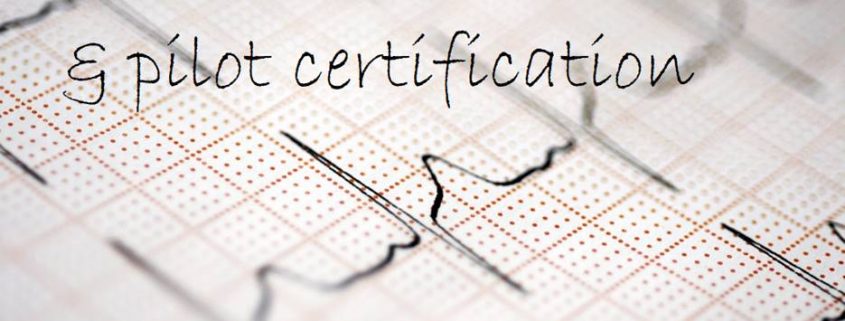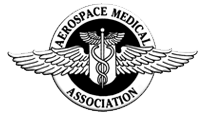The Heart of a Pilot
If there is one thing on which most pilots agree, it is their disdain for the FAA’s medical certification process. There is almost always a seemingly unreasonable delay to process anything with the Aeromedical Certification Division and some tests required by the FAA are invasive and expensive prompting even physicians to balk at the costs of providing flight-fitness proof. Cardiovascular testing is at the forefront of this controversy. Some of the testing required for commercial privileges even have mortality rates associated with them. For most pilots obtaining FAA medical certification with a cardiovascular issue is a very inefficient process yet there is an effective and timely solution for almost every condition of the heart.
Cardiovascular issues are common and they are also the leading cause of death in the United States. Issues of the heart are also the leading cause of FAA medical certificate denial. In many ways, FAA medical standards for matters of the heart are liberal considering that few cardiovascular issues are ultimately disqualifying. The US-FAA medical system can be more permissive than other countries but that does not mean that the process for FAA medical approval is simple. Dealing with the FAA medical authorities is usually not so much a medical challenge as it is a bureaucratic one. The primary solution to gaining FAA acceptance is eloquent customized paperwork.
Simple issues such as hypertension (high blood pressure), cholesterol, heart murmurs, or an unusual EKG/ECG may ground pilots for months while they gather evidence that shows they are fit to fly. Many pilots are caught off-guard since they have passed medicals for years and the required paperwork is likely an intrusion in their private physician’s daily routine.
In 2017 there were more than 62,595 hypertensive pilots who reported taking medication, making blood pressure the foremost cardiovascular issue with pilots. When considering your blood pressure, if the systolic number is above 155 or the diastolic value is over 95, expect to be grounded until it is lowered and the FAA is satisfied that a serious heart problem is not the cause. The FAA accepts most medications to control hypertension but only on a case-by-case basis. To avoid unnecessary grounding have your blood pressure checked regularly. If you pressure has been running high, have your documents well-groomed before your date with the Aviation Medical Examiner (AME).
Hyperlipidemia which includes issues such as elevated cholesterol is usually not an overarching concern of the FAA and generally, there are no particular values which are required for FAA acceptance. If, however, your private physician prescribes medication to manage your lipids this can be a factor which will affect medical certification. If your doctor has written a prescription for a medicine to improve your cholesterol values, this is almost always acceptable to the FAA provided there is clear documentation. In fact, many cardiovascular medications are acceptable to the FAA. One prominent exception is medication to control heart-related chest pain or “angina.” A list of approved medications can be found on the Accepted Medications List HERE. The medical condition which the medication has been prescribed for usually drives the FAA’s decision.
Abnormal EKG/ECG results are another common cause of FAA medical delays. Electrocardiogram (ECG/EKG) testing is not routinely performed by AME’s unless you have had at least 35 birthdays and require a Class One physical. If certain cardiac arrhythmias are discovered, the AME will likely defer the medical certification decision to the actual FAA in Oklahoma. Regular checkups from a private doctor may prevent this. If an issue surfaces, complete whatever testing your physician recommends along with his eloquently detailed letter outlining the results. This can spell the difference between being an FAA medical certificate being issued and being delayed by several months.
There are several conditions which require the actual FAA (not an AME) to make the FAA medical certification decision. Six of the 15 disqualifying conditions in the medical FAR’s relate to the heart:
(1) Angina Pectoris (chest pain)
(2) Coronary Heart Disease that requires treatment or is clinically significant
(3) Myocardial Infarction (heart attack)
(4) Cardiac Valve Replacement
(5) Permanent Cardiac Pacemaker
(6) Heart Replacement
Of these, only persistent chest pain is absolutely disqualifying. The FAA may certify the others under FAR 67.401, known as Special Issuance. Special Issuance is the “Mother-May-I” of medical certification. Pilots willing to undergo testing may be certified despite their inability to meet the FAA’s primary medical standards. The FAA’s decision is based on the quality of documentation provided and the severity of the condition.
For favorable FAA consideration, a comprehensive cardiovascular evaluation should be performed. This should include pertinent case-specific testing. Again, an eloquent customized letter to the FAA from the managing physician outlining the pilot’s complete history and status is essential. This “narrative” letter should read like a story-book and should include medical, family and social history. Obviously, it is advantageous if the narrative letter has a favorable tone with closing remarks such as: “I believe this pilot is at low risk for an incapacitating event” and/ or “may pilot an aircraft safely and without endangering public safety.” Nevertheless, don’t expect the FAA to take your physician’s word for it. Diagnostic-quality copies of all testing results must support his opinion and these results must be congruent with the FAA’s policies.
Many cardiovascular issues require successful completion of an exercise stress test. It is a good idea to prepare for this test. A conditioning program for the FAA Stress Test can be found HERE.
If you are wondering if your cardiovascular issue will allow you to pass your next FAA medical there is an easy way to find out. You can take a confidential free FAA Medical Practice Test HERE.







Thanks for the article. This is good info but I want to fly under the new rules. Can I fly under the Basic Med program with a pacemaker that has an implanted defibrillator?
Gary,
While the FAA’s general policy has been to preclude medical certification of airmen with an active Implanted Cardiac Defibrillator (ICD), there are many ICD pilots flying under basic medical rules. One of the keys to determining eligibility is the presence or absence of coronary artery disease, which is generally disqualifying without Special Issuance / waiver authorization. Contact a case manager at Pilot Medical Solutions at 405-787-0303 to discuss the details of your situation.
Historically the FAA has denied airmen with an ICD whose defibrillator function is turned on. However, a recent case may change that. A First-Class airmen has been granted Special Issuance. This underlines the importance of seeking assistance from an AME experienced in navigating the system and with relevant specialty expertise.
I went to my local AME in Dallas and he said he could not approve me because I take lisinopril which is a medicine for blood pressure. My blood pressure was fine (130/85). He said the FAA would contact me about what I need to do next. Is there nothing I can do to speed it up?
Chas,
The FAA wants to know that your blood pressure is controlled below 155/95 and that your pressure is not due to something more significant such as Coronary Artery Disease. Their default position is conservative. They assume you have a cause such as heart disease, until you provide medical evidence to the contrary. They also require some blood work.
If your AME didn’t receive these items he/she may have been thinking it was best to send your case to the FAA and let them ask you for the records.
Of course it is better for pilots if the AME allows a few days to receive supporting documents.
Perhaps this was considered but he/she didn’t think the information could be quickly retrieved.
Pilot Medical Solutions can help your private physician put together the essential records and work with the FAA to help you resolve this matter.
Contact us at 405-787-0303 or use the leftseat hotline: 888-LEFTSEAT.
My cardiologist refuses to provide me with an angiogram that the FAA says is required. Can you help?
The FAA does require angiography for certain situations. If this is for unlimited class 1 or 2 FAA certification and you have heart disease, it may be required. Contact us at 405-787-0303 to discuss in detail.
Thank you, this article was exactly what I was looking for. You’ve ended my 4 day long hunt! God Bless you man.
I have a new diagnosis of mild heart murmur. After testing it was found I have mild aortic valve stenosis. I just did a nuclear stress test today as the FAA required. I made 9 minutes but only made 81% of max heart rate. I have a lie resting heart rate.
What can I do to get my medical back?
Mary,
This should be a straightforward FAA approval provided there is ample documentation.
You need someone with extensive aeromedical certification experience to review the records making sure that the FAA requirements are met. Call 405-787-0303 to discuss your case in detail.
Jim
Exceptional. I’ve been passing Class 1 physicals for nearly 18 years. The FAA has 18 years worth of my EKGs. I also see a regular doc every year, and have well documented “slow EKGs”? Resting pulse of 55.
Suddenly, my new AME waived the flag and is now “helping” by preemptively contacting the FAA.
In addition to seeing a different AME next time, anything I can do to expedite the paperwork shitshow?
Thanks
Tim,
Resting pulse of 55 is not an issue which the FAA should be concerned about.
They may ask for a narrative letter from your private physician or cardiologist if you have one. They may ask for a cardiovascular evaluation and will likely require an explanation of any abnormality. Again, a 55 heart rate is not low enough to be abnormal. Obviously you know that pilots should not go to AME’s for health care. We can recommend a good AME and if you do get a nastigram from the FAA you should call our free hotline at 405-787-0303 to talk about how to handle what they have requested.
Hope that helps!
Hello looking for advice. My 27 year old daughter has a low grade heart murmur, most doctors don’t ever mention it. I actually forgot about it in her 27 years it’s been noticed 2 times with no concern. A recent physician visit recommended an echo. My concern is if she gets one and worst case scenario she is diagnosed with a hole in her heart, guaranteed loss of license. Or maybe it’s just a simple leaky valve. Can she choose not to move forward with testing and continue as before? Is she required to report murmur. Does the FAA require an echo. She just saw a cardiologist and he wants to perform a 7 day at home monitor, a stress test and a echo.
Keri,
An echo is obviously the best way to determine what the situation actually is and if your daughter needs something which will improve her health or quality of life. If she gets one and worst case scenario she is diagnosed with a hole in her heart, it is not a guaranteed loss of license. Certainly she can choose not to move forward with testing however the FAA requires reporting all office visits and ultimately will want the echo especially since it was recommended. A condition not diagnosed or revealed by a medical visit or evaluation may not be required to report but this does not appear to be the case with your daughter. Again, the FAA will likely require all the testing recommended by the cardiologist. Hope this info is helpful. Please call Pilot Medical at 405-787-0303 to discuss the case in greater detail.
I have been issued a special Issuance Second Class Medical Certificate every year for 15 years and last year was issued a First Class . Recently during my annual FAA treadmill stress test my Cardiologist informed me that I have AFib and prescribed an anticoagulant,Eliquis.I passed the treadmill test easily and my blood pressure and lipid problems are mild and under control with FAA approved medications.Is this anticoagulant going to create any significant problems for me? I understand that I might have to document no problems tolerating the medication for a given length of time.I keep a BasicMed certification also but I fly for hire occasionally and need a regular Medical Certificate.
Terry,
Thanks for your post. The use of Eliquis is acceptable to the FAA on a case by case basis. The A-Fib will be the main ingredient to their determination. Contact Pilot Medical at info@LeftSeat.com or 405-787-0303 if you have additional questions.
Hi,
I am 28 and I have mitral valve prolapse. I wanted to know if this is a condition that will cause me to be denied a FAA medical certificate. Thank you.
Vaughn,
These cases can be certified but often they are deferred to the actual FAA physicians by the AME, meaning you may not walk out the door with your medical certificate. Depending upon the severity and treatment received or required the FAA, the FAA will typically approve most cases.
A cardiovascular evaluation with testing such as an Echo are generally required.
If the findings are rudimentary and there is no insufficiency this will likely be favorably considered.
Pilot Medical Solutions can help you and your physicians to put a strong case together.
Call 405-787-0303.
During pre op testing for a hip replacement my ECG came back with a depressed ST Segment. I was referred to a cardiologist who performed an echocardiogram and nuclear stress test. Echo showed borderline LAE. Other than that structure was normal with 65% ejection rate. Nuclear test showed no change in ST and good blood flow through the entire myocardial structure. Cardiologist said I have great function, no disease and cleared me for surgery. I hold a 2nd class and wonder how I handle with the FAA.
Rick,
As you know the FAA requires you to report the visits to health professionals, all diagnosed medical conditions and current medications.
While it is necessary to review your medical records to advise you of what, if any condition you should report, the general findings you list appear to be benign and if so should not cause any FAA concern. One thing which would be an issue is if your EF (Ejection Fraction) was below 50% and especially if it were below 40. Also if, despite your cardiologists interpretation, the testing objectively indicated you have coronary artery disease which was either clinically significant or required treatment. Hope that is helpful. You are welcome to contact Pilot Medical Solutions at 405-787-0303 to discuss this in greater detail.
I guess I’m confused by your response. How would LAE be reported using a percentage? He said borderline LAE however the LA= 4.0 cm. I’m not sure that’s not borderline normal. Normal LV size and function with no segmental wall motion abnormalities. EF of 65%. EDV, EDS, TID, PASP, Aortic Root, IVSd, PWd, LVED and LVES all in normal range. No shortness of breath, chest pains or family history. Please expand on the results that lead you to definitive coronary artery disease.
Rick,
Thanks for your reply. The percentage we cited is your EF (Ejection Fraction) vs your LAE value. We corrected/expanded our previous reply.
As for further discussion concerning coronary artery disease it is best for you to call us to discuss this in adequate detail.
Please call 405-787-0303 between 9AM and 5PM Central Time.
Hi, I’ve read a few comments on heart murmurs and wanted to reach out as well. I was just diagnosed with a small leak between a valve and my doctor said she wasn’t too concerned about it but encouraged me to reach out to a cardiologist to monitor it. I passed my FAA medical last year without any issue. I believe I’m up for a second class medical again this year. Should I pass along the information, or just let them proceed with the medical and see if they notice the small, quiet murmur? Looking for advice as I don’t know what to do. Thanks!!
Miranda,
This is a common question and the answer is that the FAA requires you to report all medical conditions and all visits to health professionals so it is reportable. This issue appears to be a low-threat to your medical but it is important how you report it and what you provide to assure you will not be delayed or grounded. I recommend that you contact Pilot Medical at 405-787-0303 for some free advice on what should be done in your precise situation.
I too was having an issue over an ECG. After submission the FAA continued to ask for the ECG. And I continued to mail the copies. Each turnaround took approx 4 months. After a year of screwing around one FAA Dr. took pity and explained that they wanted the ACTUAL strips that come out of the machine, not copies. Luckily the info was stored on a disk at the cardiologist. Good to go? Not so fast. FAA acknowledged receiving the strips but they were now out of date! After repeating the test I was finally cleared after another 6mos. I don’t have to deal with that for the time being since I’m flying under Basic Med.
Hello!
I am 33 and recently diagnosed with Marfan syndrome. I only found out because of an aortic dissection. I am currently on blood pressure medicine and get yearly CT scans to keep an eye on the dissection. I was wondering if this disqualifies me from getting a private pilots license.
Thank you Jocolyn,
Please contact us at 405-787-0303 to confidentially discuss your case in detail.
For a continuing related discussion, please see my blog below:
Risk Management – The Pilot Physician’s Perspective
leftseat.com/risk-management-the-pilot-physicians-perspective/
Matthew M. Cooper, MD MBA FACS FAsMA FCAMA